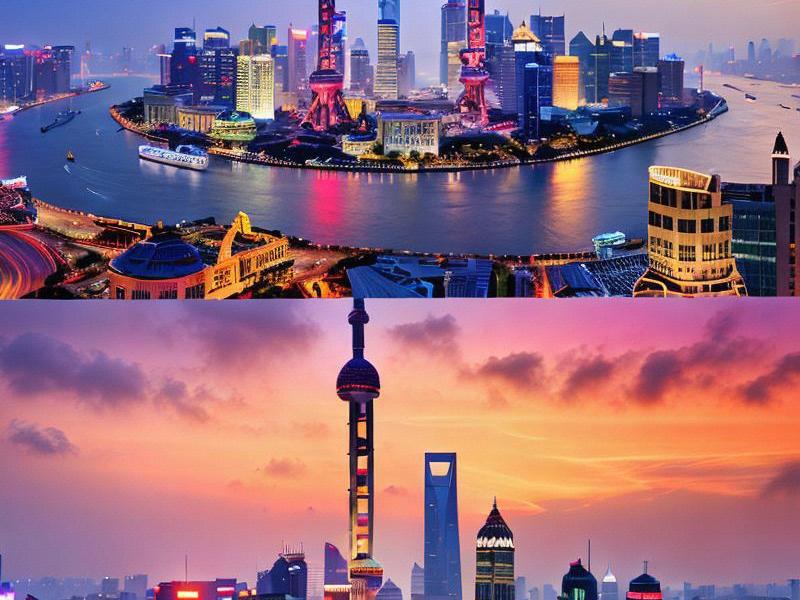This article delves into the multifaceted aspects of Shanghai, exploring its status as a global economic hub, the blend of cultures it embodies, and the remarkable urban development that has transformed this city into a beacon of modernity and opportunity in China and beyond.

Shanghai, the largest city in China, is not just a city; it is a symbol of China's rapid economic development and a microcosm of the country's modernization. Nestled along the banks of the Huangpu River, Shanghai is a city that seamlessly blends the old with the new, offering a unique glimpse into China's past, present, and future.
Historically, Shanghai was a small fishing village that gradually grew into a major port city due to its strategic location at the mouth of the Yangtze River. In the 19th century, it became one of the first cities in China to open up to foreign trade and influence. This period of opening up brought about a significant influx of Western culture, architecture, and technology, which have left an indelible mark on the city's identity.
Today, Shanghai is recognized as one of the world's leading financial centers, housing the iconic Shanghai Stock Exchange and being home to numerous multinational corporations. The city's Pudong district, in particular, has emerged as a symbol of China's economic prowess, with its skyline dominated by the futuristic skyline of the Lujiazui financial district, including the Oriental Pearl Tower, the Jin Mao Tower, and the Shanghai World Financial Center.
The economic success of Shanghai has not only attracted domestic migrants but also international talents and businesses. The city's well-developed infrastructure, efficient public transportation system, and business-friendly environment make it an ideal location for companies looking to establish a presence in China. This has led to the growth of industries such as finance, technology, manufacturing, and trade, making Shanghai a key player in the global economy.
上海龙凤阿拉后花园 Beyond its economic achievements, Shanghai is also a cultural melting pot. The city is known for its vibrant art scene, with numerous galleries, theaters, and cultural institutions showcasing a wide range of artistic expressions. The Shanghai Museum, for instance, is renowned for its extensive collection of Chinese art, while the city's numerous theaters and concert halls host performances by both domestic and international artists.
The city's culinary scene is another testament to its cultural diversity. Shanghai cuisine, known for its sweet and savory flavors, is a favorite among locals and tourists alike. From the famous Xiaolongbao (soup dumplings) to the delicate Shanghainese rice cakes, the city's food scene offers a taste of the region's rich culinary heritage.
Shanghai's urban development is a marvel of modern engineering and planning. The city has invested heavily in infrastructure projects, including the construction of the Shanghai Maglev Train, the world's first commercial high-speed magnetic levitation train, which connects the city center with Pudong International Airport. The city's metro system, one of the busiest in the world, provides efficient and convenient transportation for millions of residents and visitors daily.
The city's commitment to sustainability is also noteworthy. Shanghai has implemented various green initiatives, such as the construction of green buildings, the promotion of public transportation, and the development of urban green spaces. These efforts aim to reduce the city's carbon footprint and improve the quality of life for its residents.
上海龙凤419杨浦
Education is another area where Shanghai excels. The city is home to some of China's top universities, including Fudan University and Tongji University, which attract students from all over the world. The city's education system is known for its high standards and emphasis on innovation and critical thinking.
Tourism is a significant contributor to Shanghai's economy, with millions of visitors flocking to the city each year to experience its unique blend of history, culture, and modernity. The Bund, a historic waterfront area, offers stunning views of the Pudong skyline and is a popular spot for both locals and tourists. The Yu Garden, a classical Chinese garden, provides a glimpse into the city's rich cultural heritage.
Shanghai's role in global affairs is also noteworthy. The city has hosted numerous international events, including the 2010 World Expo, which attracted millions of visitors from around the world. The Expo showcased Shanghai's ability to host large-scale international events and highlighted the city's commitment to global cooperation and development.
上海贵族宝贝sh1314 In conclusion, Shanghai is a city that embodies the spirit of China's rapid development and modernization. Its status as a global economic hub, cultural melting pot, and model of urban development makes it a city of endless charm and opportunities. Whether you are interested in business, culture, history, or simply want to experience the vibrant life of a modern metropolis, Shanghai offers something for everyone.
As Shanghai continues to grow and evolve, it remains a symbol of China's aspirations and a testament to the country's ability to embrace change while preserving its rich cultural heritage. The city's story is one of resilience, innovation, and determination, making it a source of inspiration for people around the world.
In the future, Shanghai is poised to play an even more significant role on the global stage. With ongoing investments in technology, infrastructure, and sustainability, the city is well-positioned to remain a leading global city for years to come. Whether you are a business professional, a student, a tourist, or simply someone interested in the future of cities, Shanghai is a destination that promises to deliver unforgettable experiences and insights.